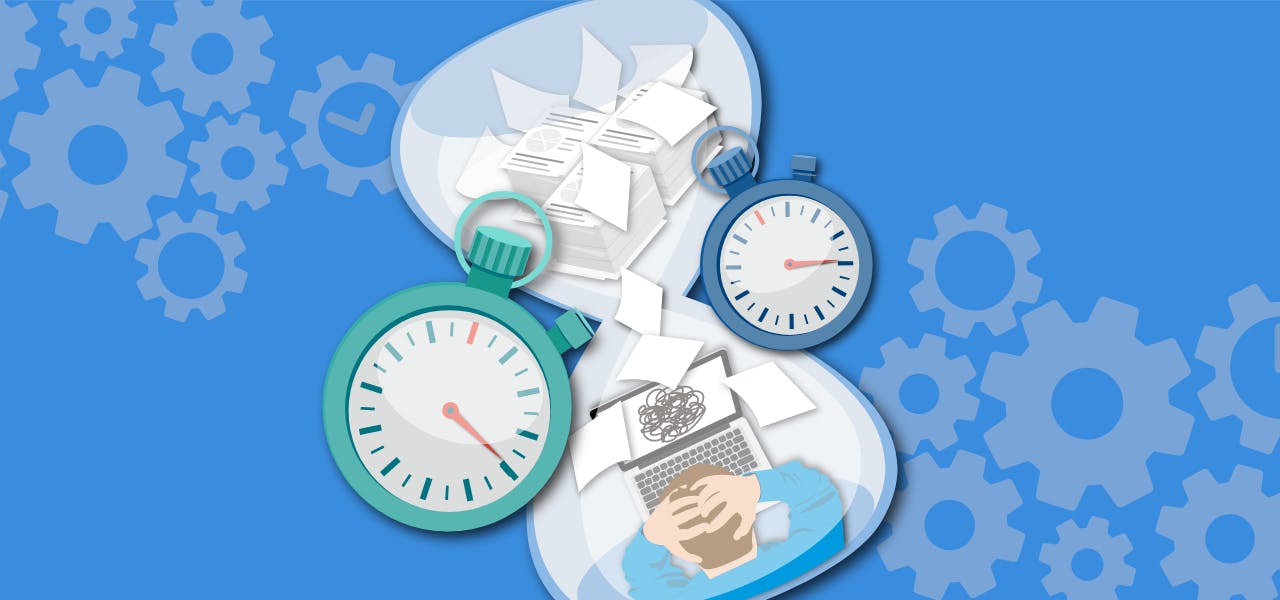Being a researcher can often feel like you are juggling two full-time jobs. Between your classroom requirements of being a high-performing teacher and faculty member and the ‘publish or perish’ expectations of completing high-impact research, there isn’t a lot of time leftover for a personal life and familial obligations if you aren’t accounting for every second of your day.
The skill of time management is an integral one for busy researchers. If you aren’t careful, you can end up burnt out, overwhelmed, or missing important responsibilities and deadlines. You must take the initiative to learn how to handle your distractions and limit them, as well as take care of your daily duties by working smarter, not harder to reduce your workload before the stress takes too much of a toll on you!
The Real Problem of Academic Burnout
In the field of research, the majority of the work you do is knowledge-based. This is often just as difficult as back-breaking manual labor and it frequently requires overcoming your own personal problems and mindset. Telling yourself to put your problems aside to focus on your work is easy to do. Actually doing so is another story entirely.
If you find yourself easily irritated and frustrated, less excited about work that you used to enjoy, or tired in general, you might be feeling academic burnout. It’s a common condition in students who study too hard, overstress, and are working on the same thing for too long, but it happens in researchers, too. Academic burnout is both a mental and physical reaction that manifests as fatigue, exhaustion, lack of motivation, and overall frustration from doing too much for too long.
Why Time Management is Necessary
If you aren’t careful with managing your many hats, you could be treading a dangerous line in which important factors of your research, deadlines, or people relying on you may be overlooked. But even if you are staying on top of everything, it probably feels like a delicate balancing act in which one wrong move could send all of your hard work toppling over the edge. This feeling is hard to carry for long periods of time and can end up pushing you into academic burnout.
Watch for signs that you need to be managing your time better before burnout happens, such as:
● Extreme exhaustion, regardless of how much you are able to sleep
● Insomnia
● Lack of motivation to do your jobs or basic responsibilities
● Increased irritableness
● Reduced creativity or inspiration
● Reduced confidence in your abilities and skills
● Missing deadlines
● Overall physical discomfort and general malaise
● Lowered immune system with increased illnesses
● Obvious increase in bad habits, like nail biting, alcohol indulgence, overeating, etc.
● Reduced concentration or increased disinterest and boredom in tasks
● Anxiousness or depression
These symptoms are all warnings that you need to readjust how you are handling your many responsibilities.
Strategies to Save Time
When you shave a few minutes off of your day in different tasks, it quickly adds up to a better quality of life. As a busy researcher, you can’t afford to let non-productive distractions keep you from being successful or pull your attention away from important things. Try these tips to build extra time into your day:
● For one week, record your activities throughout the day and how much time you spent on each of them. Which of these are low-value tasks that could be delegated to someone else or taken off your schedule entirely?
● Utilize this recording of your day to find out where your free time typically is and allocate those minutes to doing something productively. It may be giving yourself time to indulge in a hobby that helps you move forward mentally, responding to emails or organizing your desk, or returning phone calls. What it shouldn’t be is wasted time stuck in a vortex of gossiping or mindless social media scrolling.
● Make time to plan your day the evening before. Ten minutes each night can start your day productively, full speed ahead.
● Set boundaries with other people so they know when it is okay to come to you for help or conversations and when you are focused and shouldn’t be interrupted.
● Merge everything you can into a digital organizer to help you become more efficient. When what you need is all in one place, you save minutes switching from program to program.
Keep these strategies in your mind daily to ensure you continue to look for ways to save a few minutes, then a few minutes more, until you are able to handle all of your responsibilities and still have time to spare!
